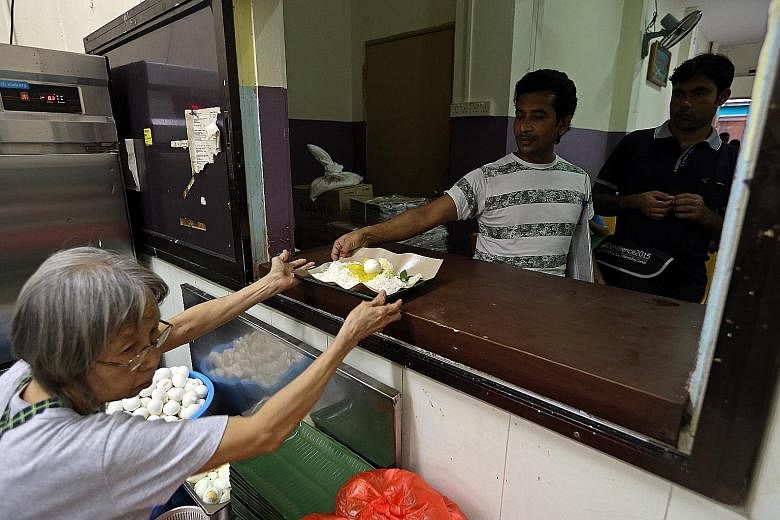More than half of the lower-skilled South Asian migrant workers here waiting for salary or injury claims are likely to be suffering from serious psychological distress. This is according to a Singapore Management University (SMU) survey released yesterday.
The survey of 605 workers, mostly from Bangladesh and India, found that more than 60 per cent of respondents who had outstanding injury or salary claims were predicted to have serious mental illness. This is more than four times the prevalence among workers with no claims. The study listed threats of repatriation by employers, debts owed to agents, and a lack of housing for runaway workers as the main causes of the stress.
SMU Assistant Professor Nicholas Harrigan, who co-authored the study with former SMU student Koh Chiu Yee, said that the precarious nature of work for migrant workers here can affect their well-being. "Serious mental illness", according to the survey, could include being diagnosed with an anxiety disorder, which can impair a person's ability to do his job, combined with missing over 30 days of work in a year.
"Unequal bargaining power can escalate small incidents into complicated issues," said Prof Harrigan at an event at SMU to share the survey findings.
Foreign workers with injury and salary claims make up around 1 per cent of the foreign workforce in Singapore, said a Ministry of Manpower (MOM) spokesman, in response to queries.
This comes up to around 13,700.
"We take these cases seriously as they cause much distress to the affected workers," the spokesman said, adding that employers are prohibited by law from repatriating workers before their claims are settled and MOM issues exit papers.
The survey also found that paying an agent fee - which can range from $1,000 to $10,000 - led to a 50 per cent increase in the chance of having a serious mental illness among all respondents.
Migrant worker non-governmental organisation leaders said the results of the survey, done over two weeks in 2013, validated their experiences with migrant workers.
Transient Workers Count Too (TWC2) executive committee member Debbie Fordyce said the stress of dealing with injury claims or salary disputes, during which workers typically cannot work, can be a heavy burden to bear. "When they first come to us, many break into tears; they don't know how to deal with this," she said.
TWC2 sees around 2,000 South Asian work permit holders a year at its soup kitchen, most of whom have pending claims.
Workers with unpaid agency fee debt would often rather run away than be deported, said Mr Jolovan Wham, executive director of the Humanitarian Organisation for Migration Economics.
"Going back is almost like financial suicide for many of them," he said, during a panel discussion.
To improve the situation for these workers stuck in limbo, the researchers suggested that the Government look into providing accommodation for injured workers who have run away from their employers, and regulating migration agents in sending countries - which is being done by New Zealand.
Based on the survey, as well as interviews with 196 workers, they also suggested that workers be guaranteed access to 30-day short-term visit passes if their work permits are terminated, which would reduce the power of employers to threaten workers with deportation.
The MOM spokesman said that the ministry is unable to regulate the fees and practices of recruitment agencies outside of the country. "We do bring to the attention of the respective embassies or high commissions such practices, for enforcement action to be taken in their home countries."
Ms Porsche Poh, executive director of mental health advocacy organisation Silver Ribbon (Singapore), said that she hopes to work with MOM towards making subsidised treatment for severe mental health issues available to foreign workers.
Lawyer Mohammed Ali, who specialises in work injury claims at HOH Law Corporation, said that many workers do not talk about their difficulties. "They say, 'It's survival of the fittest, you can't show your weakness.'"

